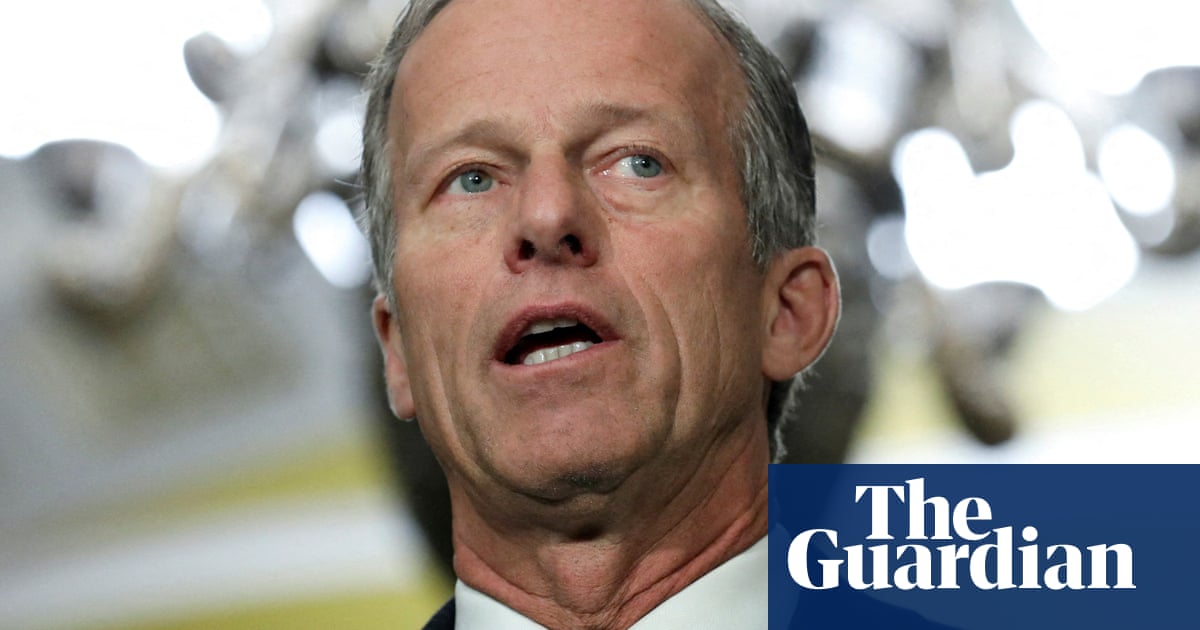Keir Starmer has said he hopes a trade deal struck last month with the US could come into effect “in just a couple of weeks”, as the White House has signalled that the UK will be spared the 50% steel and aluminium tariffs that came into force on Wednesday.
Donald Trump said he had decided to “provide different treatment” to the UK, after the deal was agreed between Washington and London – though it is yet to be signed.
Starmer said in the House of Commons on Wednesday that the deal would be implemented “within a very short time”.
The executive order signed by the US president on Tuesday evening will raise import taxes for US companies buying from other countries.
Levies will remain at 25% for imports from Britain, although the higher 50% could come in “on or after 9 July” if the US administration “determines that the UK has not complied with relevant aspects” of the deal.
Challenged over the uncertainty during prime minister’s questions by the Conservative leader, Kemi Badenoch, Starmer said: “We are the only country in the world that isn’t paying the 50% tax on steel and that will be coming down. We are working on it, to bring it down to zero; that is going to happen.”
The business secretary, Jonathan Reynolds, said on Wednesday that “essential steps” were taking place “at pace” to turn Starmer’s agreement with Trump into an implementable deal that would eliminate tariffs on steel and cars.
Reynolds was speaking at a brief press conference in Brussels, announcing 13 partnerships with third countries to develop critical minerals supplies, including one pact to financially support Tungsten West, which hopes to reopen a closed mine in Devon. His visit to Brussels came a day after a meeting with the White House trade representative, Jamieson Greer, on the sidelines of an OECD summit in Paris.
“The two essential steps we are continuing to progress at pace is, first of all, the implementation of the agreement we have on sectoral tariffs. Steel and aluminium is part of that, alongside automotive, aerospace and the other critical sectors,” Reynolds said.
“We’ve had the decision not to extend 50% but we need to bring that 25% down to effectively zero … that is one piece of work which we continue to progress at pace.”
Reynolds added that “deeper negotiation about reciprocal tariffs” between the UK and the US was “ongoing”. “We don’t want to see additional barriers to trade being put in place, and we continue to work constructively with all partners to secure that,” he said.
The reduction in tariff rates for UK steelmakers was “in the short-term … good news” said Rowan Crozier, the chief executive of Brandauer, a metal-stamping specialist.
However, the boss of the Birmingham-based company told BBC Radio 4’s Today programme that continual changes to tariff policy were damaging and creating uncertainty for business. “It is quite far-reaching because essentially our customers are less confident in forward planning or ordering what they need,” Crozier said.
He added that the company was having to contact its US customers directly, and called on the UK government to finalise the trade deal with the US in the coming weeks.
“I think the government have done well to keep us out of it for now but there is a definite deadline they have got to work to now to take away this uncertainty and get those tariffs to zero,” Crozier said.
after newsletter promotion
The industry body UK Steel welcomed Trump’s decision to keep tariffs at 25% but said uncertainty remained over the final rate.
Its director general, Gareth Stace, said: “Continued 25% tariffs will benefit shipments already on the water that we were concerned would fall under a tax hike.”
However, he added: “We need the UK government to apply rocket boosters to those negotiations with the US administration to get that deal over the line and remove tariffs altogether on our imports and exports to the US market, which is our second-biggest export market.”
Steel companies had been considering whether to turn shipments around in the mid-Atlantic to try to sell products in Europe rather than pay 50% tariffs. There were also questions over whether products immediately shipped back from the US would be liable to the levies.
Liam Bates, the president for long products at Marcegaglia Stainless Sheffield, told the Guardian that the UK industry was relieved. He said: “Storm in a teacup springs to mind.”
However, he added that “this is still a wider issue as anything not exclusively UK is attracting 50%” tariffs. It also does require this 0% deal is now done.”
Paul Nowak, the general secretary of the TUC, said the exemption “takes us back from the brink and many workers will breathe easier as a result” amid fears that thousands of British jobs could be lost if the steel and aluminium tariffs came into full force.

 German (DE)
German (DE)  English (US)
English (US)  Spanish (ES)
Spanish (ES)  French (FR)
French (FR)  Hindi (IN)
Hindi (IN)  Italian (IT)
Italian (IT)  Russian (RU)
Russian (RU)  3 weeks ago
3 weeks ago
























Comments